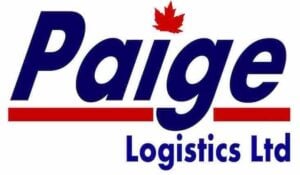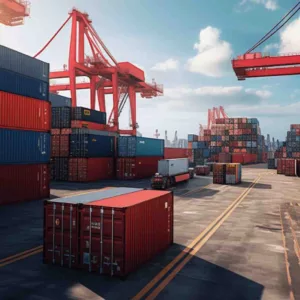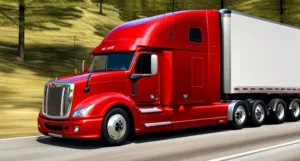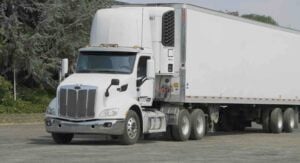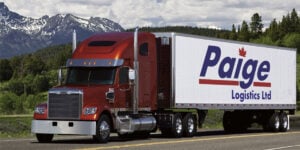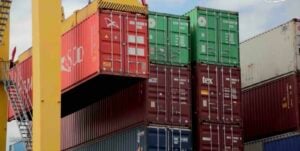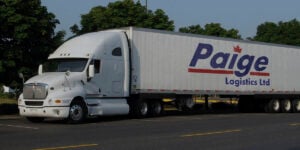Refrigerated trucking is transporting temperature-sensitive items such as food, pharmaceuticals, and medical supplies requires special care and attention.
Otherwise known as reefer trucking, provides temperature-controlled shipping for such products.
In this article, we will discuss the significance of refrigerated transportation trucking services in the supply chain industry as well as its various facets for shipping to Canada or USA.
Ocean Freight Services China to Canada
What is Refrigerated Trucking?
Temperature-controlled shipping is the transportation or freight forwarding of temperature-sensitive products using refrigerated vehicles that have a powered liftgate maintain the required temperature range for the duration of the journey. These vehicles are equipped with temperature control units that enable the cargo-specific temperature to be adjusted. The temperature control unit can be adjusted to sustain temperatures between sub-freezing and room temperature.
The Importance of Temperature Controlled Trucking
The supply chain industry relies on Reefer trucking services and refrigerated conestoga trailers to ensure that temperature-sensitive products are transported safely and efficiently. This service is essential for the food and beverage, pharmaceutical, and medical industries, where the safety and efficacy of products depends on maintaining the requisite temperature range.
Advantages of Refrigerated Trucking
The advantages cold chain logistics over conventional conveyance services are numerous. These consist of:
Temperature Control
The greatest benefit of chilled transport services to maintain a constant temperature range throughout the voyage. This guarantees the cargo’s safety and protection against temperature fluctuations.
Increased Shelf Life
The greatest benefit of perishable goods transportation is the ability to maintain a constant temperature range throughout the voyage. This guarantees the cargo’s safety and protection against temperature fluctuations.
Increased Quality Control
Advanced temperature monitoring systems provide real-time data on the temperature and humidity levels inside the cargo area of climate-controlled transportation. This enables increased quality control and the rapid detection of temperature deviations.
Challenges of Refrigerated Trucking
Cost:
Due to the specialized apparatus and technology required, Frozen food transportation is more expensive than traditional transportation services.
Maintenance:
Regular maintenance must be performed on refrigerated vehicles to ensure that the temperature control units and other equipment are functioning properly.
Limited Availability:
There are fewer refrigerated trucks available than conventional trucks, making it more difficult to locate an appropriate carrier. The transportation service of temperature-controlled shipping for temperature-sensitive products such ass pharmaceutical shipping is crucial.
This service is especially essential for reefer to transport food and beverage, pharmaceutical shipping, medical supply logistics, and fresh produce delivery where products’ safety and efficacy depend on maintaining the required temperature range.
The advantages of best refrigerated trucking companies, including temperature control, increased shelf life, and quality control, make it an essential component of the supply chain industry.
Refrigerated Containers
In the world of temperature controlled shipping logistics, refrigerated containers are certainly a game-changer, providing a dependable and efficient method for globally transporting temperature-sensitive products.
Due to their ability to maintain the desired temperature, versatility, cost-effectiveness, eco-friendliness, convenience, safety, global reach, flexibility, technology integration, and expertise, refrigerated containers are the preferred option for companies transporting perishable goods.
Whether you are looking for Canadian refrigerated trucking companies to ship fruits, vegetables, dairy products, meat, pharmaceuticals, or other temperature-sensitive items, investing in refrigerated containers can ensure that your goods arrive in perfect condition, preserving their quality and prolonging their shelf life.
Take your transportation operations to the next level by leveraging the benefits of refrigerated containers in the highly competitive national refrigerated logistics industry.
less-than-truckload cold chain shipping

Author & Chief Executive Officer at Paige Logistics Ltd. → Experienced Operations Manager with a demonstrated history of working in the Transportation, Trucking and the Railroad Industry.
